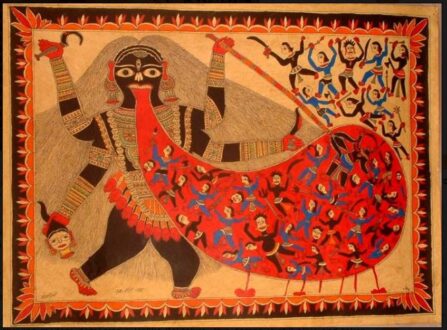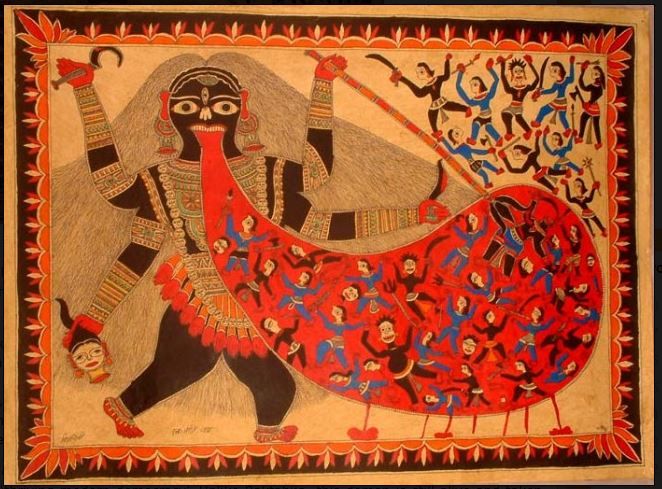Raktabeej is an asura or demon from Indian mythology. He has become known more in recent times after his reference in the recently-released Hindi movie Pathaan with regards to the name and quality of the weapon the villain uses in the film.
As per the legend, Raktabeej had an unusual boon from Lord Brahma. As per the boon, if a drop of his blood falls on the ground, another Raktabeej will emerge from it. This will keep on happening every time a drop of his blood falls on the ground. As he was an asura, he used the boon in the cruellest manner possible and made life hell for the common people, sages, demigods and everyone.
All the concerned people went to Goddess Parvati, the manifestation of eternal energy, and urged her to help end the menace of Raktabeej. Hence, she took the form of Goddess Kali to deal with Raktabeej.
The appearance of Goddess Kali is scary for most of us. She has a chain of human skulls around her neck. She has a waistband from where hung many human limbs. She also has long teeth and a long red tongue in her mouth. But there is more. She has eight hands, with one holding the severed head of a demon. The rest of the hands contain the usual objects one can see Gods holding, like trishul, conch, mace, sword, etc.

There is no doubt that anyone who has a look at the avatar of Goddess Kali will get frightened. But one must make note that only demons need to fear her since her avatar is meant to scare only them. She is worthy of worship for common people.
When Kali went on the battlefield against Raktabeej, she stabbed him but didn’t let his blood fall on the ground in order to stop the demon from mutating himself. Instead, she used her tongue to drink his blood in order to end his life. She continued doing this till Raktabeej died. The earth was finally free from a deadly demon.
However, Goddess Kali faced a strange side-effect of the battle. Such was the impact of the clash that she started destroying everything that came in from of her and lost control of what she was doing. In order to stop her aggressiveness, her husband, Lord Shiva, came in front of her and lay down. When she saw her husband lying in front of her, she finally got hold of herself and stopped.
Author Ashwin Sanghi’s celebrated novel The Krishna Key also mentions Raktabeej. Interestingly, the unique quality of Raktabeej raises the question whether the story of Raktabeej is nothing but another way of describing clones. Were our ancient greats so advanced in science? Whether you believe in the theory or don’t, it’s interesting nevertheless.









Comments & Discussion
7 COMMENTS
Please login to read members' comments and participate in the discussion.